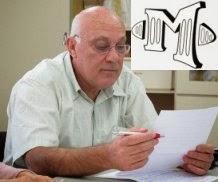The oldest human fossil ever found in Portugal, the "Skull of Aroeira", was delivered to the National Archaeological Museum in Lisbon by archaeologist João Zilhão.
Archaeologist João Zilhão was responsible for excavations at the Aroeira grotto at the Almonda archaeological complex in Torres Novas, which in 2014 revealed this 400-thousand-year-old human skull "one of the few found in the world" and "the most ancient human fossil found until today in Portugal, "according to the Directorate General of Cultural Heritage (DGPC).
The archaeological find was the subject of "study and restoration work" at the Universidad Complutense de Madrid, by an international team led by Juan Luis Arsuaga, who will accompany the moment of delivery to the Museum.
"The research carried out in this respect, which was permanently monitored by the DGPC and the MNA, added knowledge to the study of human evolution and generated new arguments in favor of the thesis that includes the inclusion of all the fossils of this period in a single species ancestral to modern Man "according to the DGPC.
The first findings of these findings were published in March of last year in the bulletin of the National Academy of Sciences of the United States.
"It is the oldest fossil found in Portuguese territory and one of the oldest in Europe," says João Zilhão.
A human fossil of the mid-Pleistocene height has never been found, covering the period from 2.5 million years ago to 11,500 years ago, in such a western part of Europe.
The archaeologist indicated that the interest of this fossil is that it is "very well dated and becomes standard of reference for interpretation of other fossils very complete but with more imprecise dating."
The fossil that is now delivered to the National Museum of Archeology will be part of an exhibition on human evolution from findings made in Portugal, to be inaugurated in this museum in the second half of this year.
fonte: @edisonmariotti #edisonmariotti
https://www.tsf.pt/sociedad/interior/fossil-cranio-da-aroeira-entregue-ao-museu-nacional-de-arqueologia-9052219.html
Cultura não é o que entra pelos olhos e ouvidos,
mas o que modifica o jeito de olhar e ouvir.
A cultura e o amor devem estar juntos.
Vamos compartilhar.
Culture is not what enters the eyes and ears,
but what modifies the way of looking and hearing.
--br via tradutor do google
Fóssil "Crânio da Aroeira" entregue ao Museu Nacional de Arqueologia
O mais antigo fóssil humano até hoje encontrado em Portugal, o "Crânio da Aroeira", foi entregue ao Museu Nacional de Arqueologia, em Lisboa, pelo arqueólogo João Zilhão.
O arqueólogo João Zilhão foi responsável pelas escavações na gruta da Aroeira, no complexo arqueológico do Almonda, em Torres Novas, que em 2014 revelaram este crânio humano de 400 mil anos, "um dos poucos dessa época encontrados no mundo", e "o mais antigo fóssil humano encontrado até hoje em Portugal", segundo a Direção-Geral do Património Cultural (DGPC).
O achado arqueológico foi alvo de "trabalhos de estudo e restauro" na Universidade Complutense de Madrid, por uma equipa internacional liderada por Juan Luis Arsuaga, que acompanhará o momento da entrega ao Museu.
"A investigação desenvolvida a seu respeito, acompanhada em permanência pela DGPC e pelo MNA, acrescentou conhecimento ao estudo da evolução humana e gerou novos argumentos a favor da tese que defende a inclusão de todos os fósseis deste período, numa única espécie ancestral ao Homem moderno", segundo a DGPC.
As primeiras conclusões destas descobertas foram publicadas em março do ano passado, no boletim da Academia Nacional das Ciências dos Estados Unidos.
"É o mais antigo fóssil encontrado em território português e um dos mais antigos da Europa", diz João Zilhão.
Nunca se tinha encontrado um fóssil humano da altura média do Pleistoceno, que cobre o período desde há 2,5 milhões de anos até há 11,5 mil anos, num local tão ocidental da Europa.
O arqueólogo indicou que o interesse deste fóssil é que está "muito bem datado e passa a ser padrão de referência para interpretação de outros fósseis bem completos mas com datação mais imprecisa".
O fóssil que hoje é entregue ao Museu Nacional de Arqueologia irá fazer parte de uma exposição sobre evolução humana a partir de achados realizados em Portugal, a inaugurar neste museu no segundo semestre deste ano.
化石“Aroeira的头骨”交付了国家考古学博物馆
葡萄牙历史上最古老的人类化石“Aroeira的头骨”被考古学家JoãoZilhão送到里斯本国家考古博物馆。
考古学家JoãoZilhão负责Torres Novas Almonda考古遗址的Aroeira洞穴的挖掘工作,2014年,该遗址揭示了这个拥有四十万年历史的人类头盖骨“世界上发现的少数几个之一”和“最古老的人类化石发现直到今天在葡萄牙,“据文化遗产总局(DGPC)。
考古发现是马德里康普顿斯大学“研究和修复工作”的主题,由Juan Luis Arsuaga领导的一个国际小组负责,他将陪同送达博物馆。
“在DGPC和MNA长期监测的这方面进行的研究增加了有关人类进化研究的知识,并为这个论题提出了新的论据,包括把这一时期的所有化石都列入根据DGPC指出,现代人的祖先是单一的物种。
这些发现的第一个发现是去年3月份在美国国家科学院公报上发表的。
JoãoZilhão说:“这是葡萄牙领土上发现的最古老的化石,也是欧洲最古老的化石之一。
一个中世纪以来更新世的人类化石从来没有被发现,覆盖了从250万年前到11,500年前的这个欧洲西部的时期。
考古学家指出,这个化石的兴趣在于它是“非常好的,并且成为其他化石的解释标准非常完整,但更不精确的约会”。
现在提交给国家考古博物馆的化石将成为今年下半年在葡萄牙发现的一个人类进化展览的一部分,这个展览将在这个博物馆落成。



Nenhum comentário:
Postar um comentário